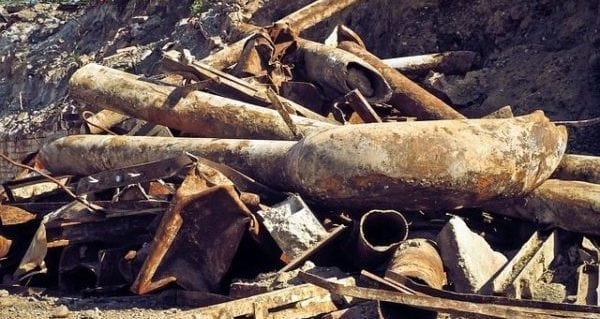 “The meek will inherit the earth … if that’s okay with everybody else,” goes the old joke.
“The meek will inherit the earth … if that’s okay with everybody else,” goes the old joke.
When it comes to developing Canada’s energy sector, that trite joke seems all too true. The Northern Gateway, Energy East, and Pacific NorthWest LNG pipeline proposals have been scrapped.
Scotiabank estimates that the Canadian economy forfeits $15.6 billion a year as other pipeline proposals await approval.
Has this happened because Canadians organically and collectively decided the environmental impact was too great?
No. This actually happened because uber-rich American environmental foundations planned and paid for this very result.
The Trans Mountain pipeline expansion project may be the best proof of this claim. Kinder Morgan built its first Trans Mountain pipeline in 1953. In 2008, it added 158 km of pipeline in its Anchor Loop Project. The project that sent oil straight through Jasper National Park happened without hiccups and even captured awards for its environmental responsibility. Nevertheless, the Trans Mountain expansion project has met fierce resistance, even though most of it simply twins the existing route. Why?
Follow the money, as researcher Vivian Krauss did, and you’ll find out.
In 2008, the Rockefeller Brothers Fund, the William and Flora Hewlett Foundation, and the Tides Foundation sponsored the Tar Sands Campaign to curtail Alberta oil. The 17-page strategy paper by Corporate Ethics International is still available. A decade later, its success is undeniable. Its agenda was to “Stop or limit the expansion of pipelines, up-graders and refineries,” cap oilsands development and isolate Albertan crude to Alberta has largely succeeded.
“From the very beginning,” the Tar Sands Campaign website tells us, “the campaign strategy was to land-lock the tar sands so the crude could not reach the international market where it could fetch a high price per barrel. This meant national and grassroots organizing to block all proposed pipelines.”
A grassroots campaign is doomed when its participants, and the public at large, realize that the whole thing is bankrolled by Americans trying to kill Canadian resource sales. That’s why the strategy paper advised secrecy: “The Coordination Center shall remain invisible to the outside and to the extent possible, staff will be ‘purchased’ from engaged organizations.”
The foundations stuck to the plan. Tides gave $36 million to more than 100 organizations in Canada, the U.S. and Europe to campaign against oilsands development and the transportation of oil to refineries and ports. Likewise, the Hewlett Foundation has given $90 million to First Nations and environmental groups in British Columbia and the western U.S. to oppose oil and gas development. More than 60 groups also get behind-the-scenes and ghost-writing support from NetChange, a private American company funded to “support and amplify” the campaign.
An essential part of the campaign strategy was “a steady drumbeat of bad press” to make the oilsands look as dirty as the “tar” label they use. It seems they were ready not only to smear but to lie. Although the oilsands cover just one per cent of Alberta’s boreal forest, some environmental groups have declared it as big as Florida. Others assert that the carbon footprint in the oilsands is three or four times larger than the average unit produced in the United States. The reality is, it is only 10 to 20 per cent larger – and still better than California heavy oil.
What else did oilsands opponents do?
Krauss tells us: “Among the strategies employed by the Tar Sands Campaign are legal action, putting land and marine access off-limits in the name of protecting wildlife habitat, fomenting First Nations opposition and leveraging their constitutional rights, lobbying and celebrity endorsement.” If you ever wondered why Jane Fonda flew a fuel-powered helicopter over the oilsands or 150 First Nations allied to oppose them, wonder no more.
Strange thing, though: every First Nation whose reserve the pipeline passes through has agreed to its passage. So have 80 per cent of such communities even close to the route. Could the $400 million in agreements Kinder Morgan made with those 51 communities have had something to do with it?
Probably, and that’s a good thing. Canadians should decide what’s best for Canada. The economic potential of pipeline construction and oil exports is a substantial benefit for everyone who lives here.
Now that we know about the Americans forking out millions of dollars to hold us back, we should stop listening to the politicians and protesters they hire.
Lee Harding is a research associate for the Frontier Centre for Public Policy.
The views, opinions and positions expressed by columnists and contributors are the author’s alone. They do not inherently or expressly reflect the views, opinions and/or positions of our publication.


